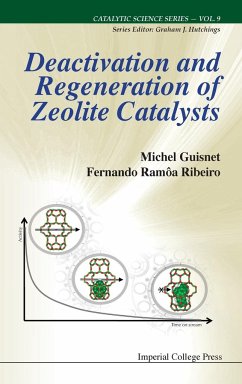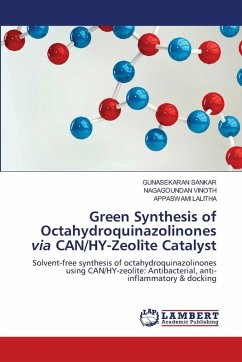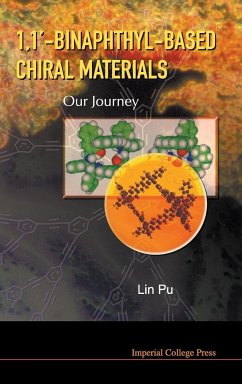
DEACTIV & REGENER OF ZEOLITE CATALY (V9)
Versandkostenfrei!
Versandfertig in 1-2 Wochen
106,99 €
inkl. MwSt.

PAYBACK Punkte
53 °P sammeln!
In chemical processes, the progressive deactivation of solid catalysts is a major economic concern and mastering their stability has become as essential as controlling their activity and selectivity. For these reasons, there is a strong motivation to understand the mechanisms leading to any loss in activity and/or selectivity and to find out the efficient preventive measures and regenerative solutions that open the way towards cheaper and cleaner processes. This book covers in a comprehensive way both the fundamental and applied aspects of solid catalyst deactivation and encompasses the state-...
In chemical processes, the progressive deactivation of solid catalysts is a major economic concern and mastering their stability has become as essential as controlling their activity and selectivity. For these reasons, there is a strong motivation to understand the mechanisms leading to any loss in activity and/or selectivity and to find out the efficient preventive measures and regenerative solutions that open the way towards cheaper and cleaner processes. This book covers in a comprehensive way both the fundamental and applied aspects of solid catalyst deactivation and encompasses the state-of-the-art in the field of reactions catalyzed by zeolites. This particular choice is justified by the widespread use of molecular sieves in refining, petrochemicals and organic chemicals synthesis processes, by the large variety in the nature of their active sites (acid, base, acid-base, redox, bifunctional) and especially by their peculiar features, in terms of crystallinity, structural order and textural properties, which make them ideal models for heterogeneous catalysis. The aim of this book is to be a critical review in the field of zeolite deactivation and regeneration, by collecting a series of contributions by experts in the field which describe the factors, explain the techniques to study the causes and suggest methods to prevent (or limit) catalyst deactivation. At the same time, an anthology of commercial processes and exemplar cases provides the reader with theoretical insights and practical hints on the deactivation mechanisms and draws attention to the key role played by the loss of activity on process design and industrial practice.














